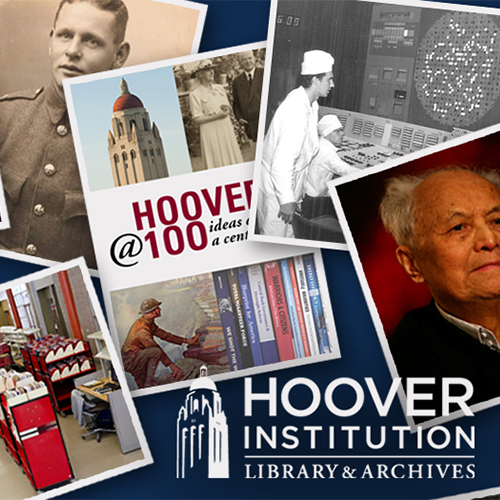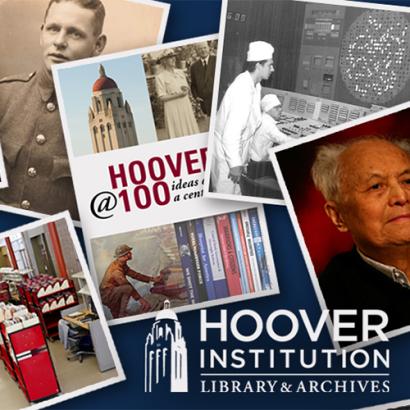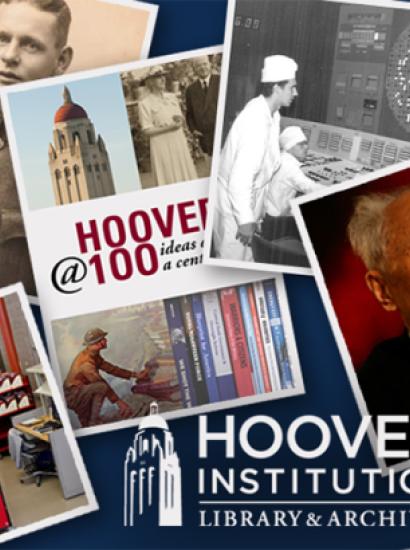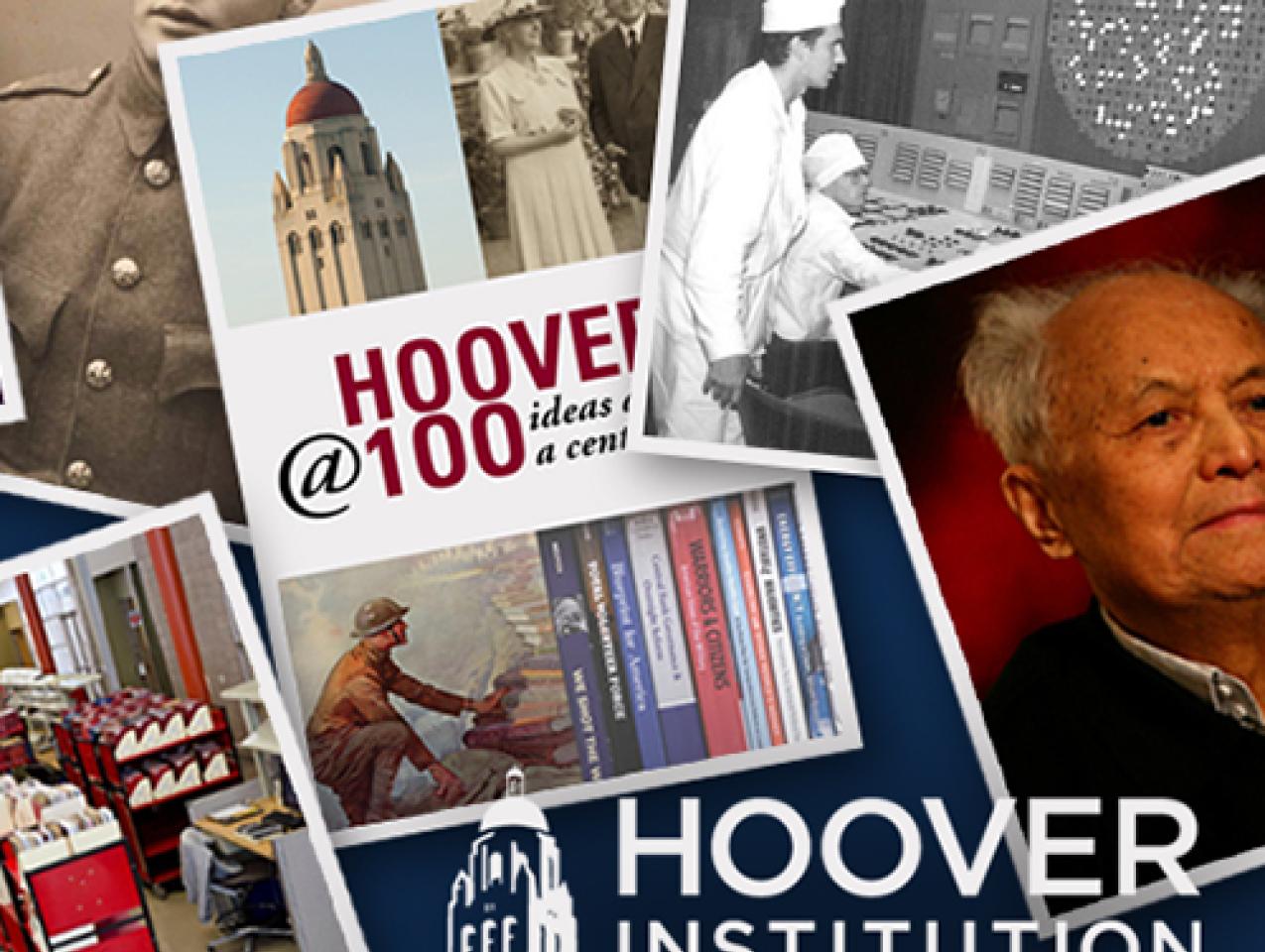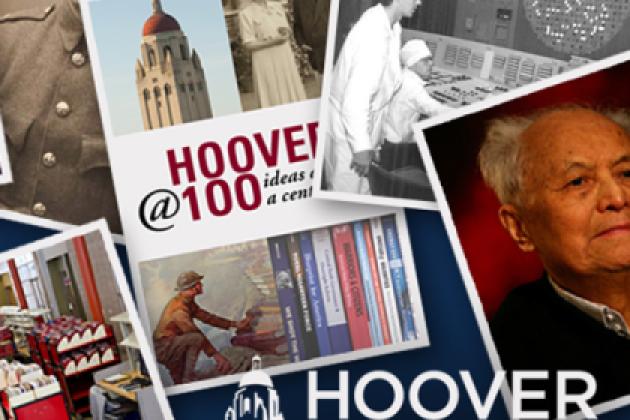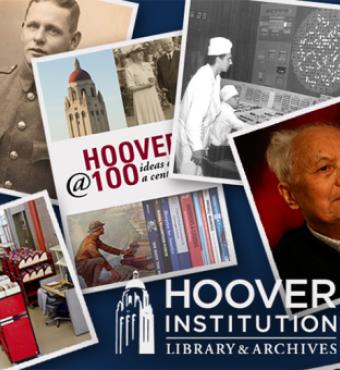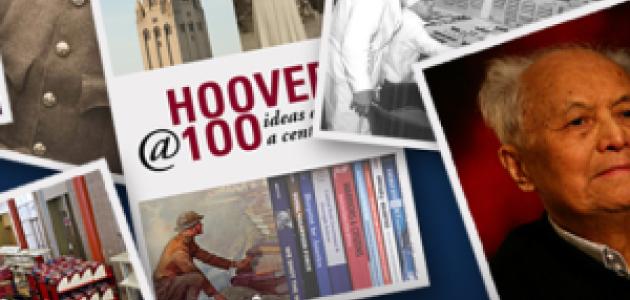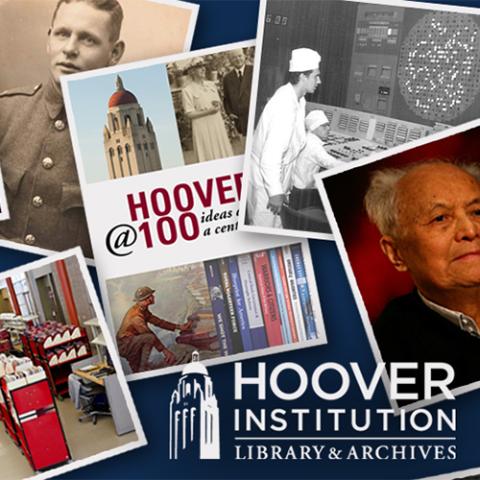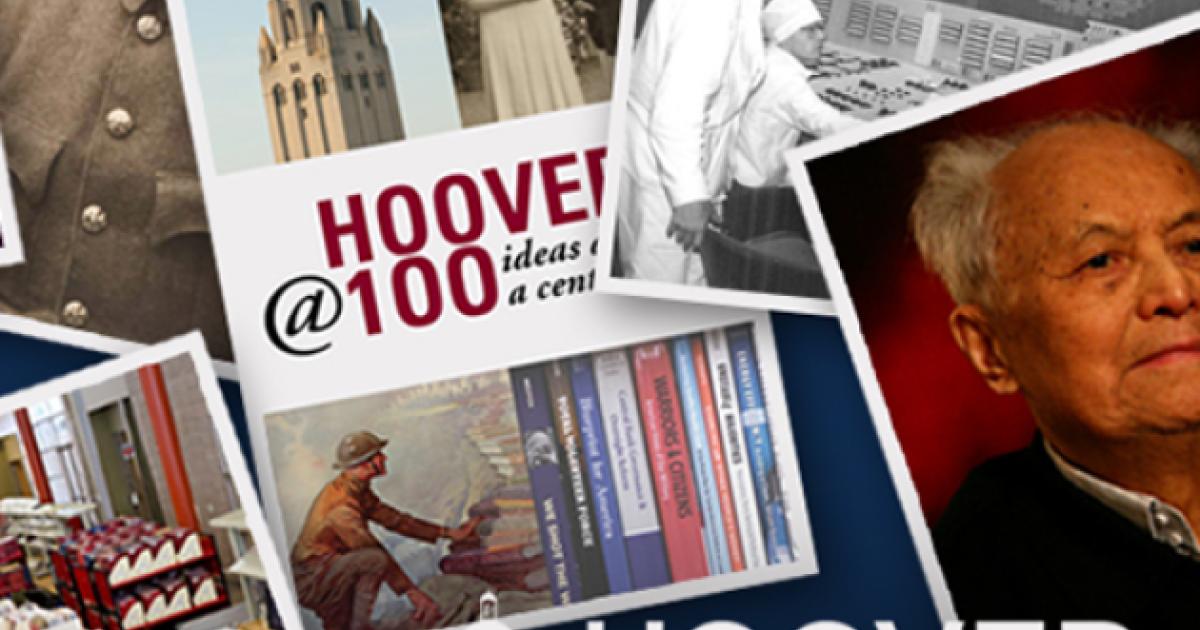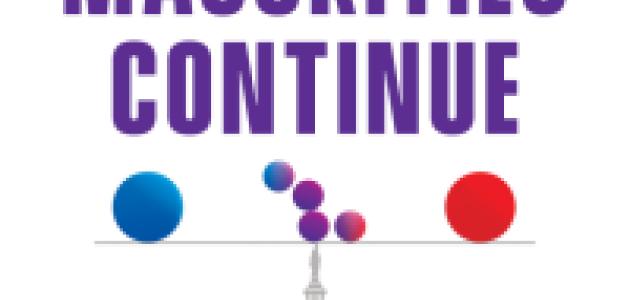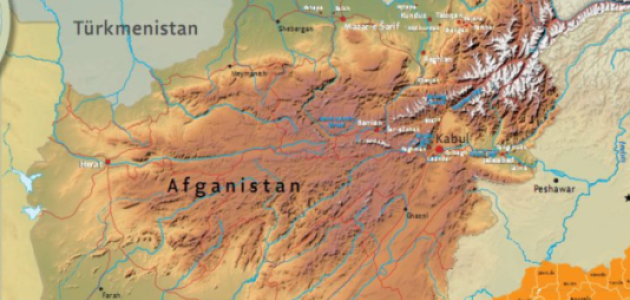Digital First!
With virtualization and digital content becoming essential to researchers, patrons of the Hoover Institution’s Library & Archives expect to interact more with collections through technologically enhanced approaches. This year Hoover launched an ambitious virtual library program that enables the Library & Archives to build capabilities for broad online distribution of its collections in digital form, which will allow future data-driven research activities. To realize the goals of this program, we are deploying new systems, hiring staff with technical competencies, developing relationships with private-sector partners that have the capacity to digitize at scale, and building the physical structures to support our efforts.

Renovating Our Tower
This year saw a major renovation of the exhibit spaces in Hoover Tower, the historic center of the Institution, which receives well over one hundred thousand annual visitors from around the world. In fall 2019, these new museum-quality galleries were inaugurated with a centennial anniversary exhibition.
State-of-the-art Storage
The Library & Archives is busy building its annex to the Stanford Auxiliary Library-3 (SAL-3), a fully modern storage facility for valuable archival material. The new facility will both increase our collecting ability and preserve our holdings in a safe, climate-controlled environment.

Hoover@100!
In celebration of its centennial, the Hoover Institution opened the exhibition Hoover@100: Ideas Defining A Century in Hoover Tower early this fall. Hoover@100 is a showcase of documents and artifacts centered around the ideas of peace, freedom, and education—ideas that are embodied in the lives of Herbert Hoover and his wife, Lou Henry, and that drove the Institution’s collecting and the work of its eminent fellows in its first one hundred years. Posters, correspondence, photographs, artifacts, and manuscripts drawn exclusively from the Library & Archives’ collections, along with publications by Hoover fellows, are among the materials on display. The exhibition in Hoover Tower will run through July 31, 2020.
New Acquisitions
The Chernobyl Disaster
Hoover has acquired the papers of Soviet journalist Alla Yaroshinska, who in 1990 was appointed to a commission of inquiry into the Soviet Chernobyl disaster, collected a large amount of material on the subject, and used some of it in a report to the European Parliament at that time. The documents in the collection include minutes of meetings of the Politburo’s ad hoc committee to address the disaster, including associated documentation on countering foreign reporting of the news (counterpropaganda). A set of photographs shows the damaged nuclear power plant and surroundings, including animals suffering from radiation-induced mutations. There are also papers dealing with other Soviet nuclear accidents and nuclear policy in general in the USSR, before and after Chernobyl.

Jack Beadle
Hoover acquired the diaries of Gerald “Jack” Beadle, a British-born WWI soldier who, after spending his youth in America, served as a sniper at Gallipoli and as an infantryman in the Middle East under the infamously harsh commander George Younghusband, and who oversaw camel transport in Mesopotamia. A spirited writer and lover of adventure, Beadle documented his varied experiences of the war with illuminating details and insightful commentary.
Major General Harry Lorenzo Gilchrist
The Hoover Institution acquired the papers of Major General Harry Lorenzo Gilchrist (1870–1943), a surgeon who during WWI served as the medical director of the AEF Chemical Warfare Division, which entailed frequent visits to the front and allied hospitals. After the Armistice Herbert Hoover, then director-general of relief for the Supreme Economic Council, personally asked President Woodrow Wilson to detail Lt. Col. Gilchrist and a unit of soldiers to anti-typhus work in Poland, whose eastern borderlands were beginning to suffer the ravages of this lice-borne epidemic, compounded by hunger and miserable living conditions. The acquired papers consist of materials on AEF delousing activities in France, correspondence and photographs relating to the anti-typhus mission in Poland, articles written by Gilchrist on chemical warfare, and assorted letters and biographical materials from the latter part of his career.
Tang Zhenchang
Hoover Library & Archives acquired the personal papers of Tang Zhenchang (1922–2002), a celebrated Chinese intellectual whose areas of interest encompassed history, journalism, cinema, screenwriting, and literature. The Tang Zhenchang papers include photos, manuscripts, correspondences, and personal diaries. These materials reflect the life and thoughts of a figure who experienced both Chinese traditional culture and progressive leftist ideology in an era of political turmoil, wars, peace, and revolution. They also demonstrate how a young progressive leftist was transformed into a liberal intellectual in his later years, a significant feature in the twentieth-century Chinese intelligentsia. His diaries, which span from the years 1979 to 2000, provide a unique glimpse into the complex social network among historians, writers, artists, and politicians in a China that, under Deng Xiaoping, opened its doors to the world.
Events and Scholarship

Chiang Ching-kuo
The Hoover Institution, the Academia Historica of Taiwan, Ms. Yo-mei Chiang, and the family of Mr. Hsiao-yen Chiang recently announced that Hoover is making available for research copies of the personal diaries (covering the period 1937 to 1979) of Chiang Ching-kuo, President of the Republic of China between 1978 and 1988. The collection illuminates a critically important period in modern Chinese history. Chiang’s diaries offer a rare glimpse into the inner world of a man who, as leader of Taiwan, oversaw the island’s transition to democracy and navigated it through an exceptionally challenging period of the Cold War. Under Chiang’s leadership, Taiwan emerged as one of the most politically and economically vibrant entities in its region. Chiang’s diaries offer an invaluable resource to historical and political scholars of the region, as well as the general public, and complement the collection of the diaries of his father, Chiang Kai-shek, which have been the most requested collection at the Hoover Institution by visitors since they were opened in 2006.
Understanding the Legacy of Li Rui

In April the Library & Archives convened a symposium titled “From Old Guard Communist to Party Critic: Li Rui, His Life and His Legacy." Li Rui’s 100-year life saw him move from young revolutionary in the 1930s, to high Chinese Communist Party official, to almost a decade of solitary confinement, and on to become a reformist critic of the Party. Panelists included Ian Johnson, a correspondent from the New York Times; Li Nanyang, a Hoover visiting fellow and the daughter of Li Rui; Orville Schell, director of the Center on U.S.–China Relations at the Asia Society in New York; and Aminda M. Smith, an associate professor of history at Michigan State University.
The League of Wives
On September 24th Hoover Library & Archives welcomed author and curator Heath Lee, author of The League of Wives: The Untold Story of the Women Who Took on the U.S. Government to Bring Their Husbands Back Home. The book tells the true story of the fierce band of women, led by Sybil Stockdale, who battled Washington and Hanoi to bring their husbands home from the jungles of Vietnam during and after the Vietnam War. Lee's book, recently optioned for film by Reese Witherspoon, draws on interviews, diaries, letters, oral histories, and government and archival records to tell a story of courage, resilience, and rescue. Lee used Hoover's Sybil Bailey Stockdale papers extensively while working on the book.
Hunger and Food Relief in Europe
This year Hoover historians and fellows participated in a symposium entitled "Post World War I Aid in Austria and Central Europe." Held in Vienna, the event brought together leading scholars of the history of food relief and humanitarian aid. Library & Archives director Eric Wakin chaired a panel on Herbert Hoover and American Aid and gave opening remarks about the Hoover Institution and its mission; Herbert Hoover biographer George H. Nash discussed Hoover's monumental efforts for the reconstruction of Europe after WWI; Stanford historian and Hoover fellow Bert Patenaude presented his findings on Hoover's work with the American Relief Administration in the Armistice period; and Hoover visiting fellow Mary Cox discussed her use of anthropometric data to study food supplies and the effect of food relief on children following the war.
A US-Taiwan-China Roundtable
This spring the Library & Archives hosted a panel on “The Taiwan Relations Act and Forty Years of U.S.-Taiwan-China Triangular Relations,” featuring Research Fellow Alice Miller and Distinguished Visiting Fellow Elizabeth Economy. Hoover fellows and guests participated in a discussion that marked the 40th anniversary of the Taiwan Relations Act, which, in April 1979, set the framework of the U.S.-Taiwan relationship despite the lack of formal diplomatic relations.
Who Assassinated Boris Nemtsov?
On March 14, Hoover Library & Archives welcomed Hoover Senior Fellow John Dunlop and David Satter, Senior Fellow at the Hudson Institute, for a talk entitled “Researching a Brazen Assassination: The February 2015 Murder of Russian Opposition Leader Boris Nemtsov.” Drawing on years of scholarship and investigative reporting, Dunlop, whose book on the topic was recently published by ibidem-Verlag, and Slatter discussed the assassination of Nemtsov and the trials of his alleged Chechen killers in detail, and fielded questions about a new era of political maneuverings and intelligence strategies under Putin. Attendees came away with a new understanding of the workings of the Kremlin and state control of information in twentieth-century Russia.
Hoover Archives on C-SPAN
This summer a wide viewing audience could see the treasures of the tower and Herbert Hoover's office, and hear the stories of how the world's most amazing artifacts related to war, revolution, and peace came to the Hoover Institution. C-SPAN posted several video features on Hoover Library & Archives as part of its "Cities Tour" series, featuring Library & Archives Director Eric Wakin, Deputy Archivist Linda Bernard, Lisa Nguyen, curator of Hoover's recent We Shot the War exhibition, and Hoover fellow Bert Patenaude.
Women of the Gulag
In June Hoover hosted a screening of and panel discussion about the award-winning documentary film Women of the Gulag, a project based on Hoover fellow Paul Gregory’s Hoover Press book of the same name. Directed by Russian American film maker Marianna Yarovskaya, the film tells the compelling and tragic stories of six remarkable women–among the last survivors of the Gulag, the brutal system of repression that devastated the Soviet population during the Stalin years and about which Hoover Archives is an international hub of scholarship. Women of the Gulag is the first account of women in the camps and special settlements. The film premiered in Hollywood and New York and was shortlisted in the Documentary Short Subject category in the 2019 Oscar competition.
Highlighting Hoover’s Rich Russian and Eurasian Collections
In November Hoover staff and scholars participated in the annual meeting of the Association of Slavic, Eastern European, and Eurasian Studies in San Francisco. Panels entitled “The Hoover Institution Library & Archives at 100: A Glance to the Past” and “The Hoover Institution Library & Archives at 100: Today and the Future” included discussions of Hoover’s world-renowned Russian and Eurasian holdings, exhibitions, collecting history, and the current Digital First initiative. Participants in the conference also visited Hoover Archives to view artifacts from the Institution’s significant holdings of Russian and Slavic art, manuscripts, books, and ephemera.
Significant Publications
Hunger in War & Peace
Hoover Visiting Fellow Dr. Mary Elisabeth Cox, a professor of history at Brasenose College at Oxford University, has published Hunger in War & Peace: Women and Children in Germany, 1914–1924. The work makes significant use of Hoover Library & Archives material and, using quantitative data, documents the effects of war on the living standards of non-combatants.
A Window into Modern Iran
This fall Hoover Library & Archives teamed with Hoover Press to publish A Window into Modern Iran: The Ardeshir Zahedi Papers at the Hoover Institution Library & Archives, which showcases the inner workings of Iranian politics through the meticulously preserved documents and photographs in the Ardeshir Zahedi papers at the Hoover Institution Library & Archives. The collection of Ardeshir Zahedi, Iran's former ambassador to the United States and United Kingdom and minister of foreign affairs, are essential for understanding modern Iranian history and its global context. This volume, edited by Hoover fellow Dr. Abbas Milani, provides never before published papers and photos that are indispensable primary sources for scholarship on modern Iranian history.

The Battalion Artist
This year Hoover Archives and Hoover Press collaborated to publish The Battalion Artist: A US Navy Seabee's Sketchbook of War in the South Pacific, a lavishly illustrated volume featuring the life and work of artist and US Navy Seabee Natale Bellantoni, whose collection is housed at Hoover. Natale Bellantoni, a young art student from Boston, sailed across the Pacific in 1943–45 and returned home with a sea chest of art and photographs documenting his experiences in New Caledonia, New Guinea, the Admiralty Islands, and Okinawa. Collected and published now for the first time, his watercolors, sketches, and photographs offer a window onto one of the most significant moments in American history.







